Achieving longer, stronger hair is a common goal that can be reached through natural, science-backed methods that help natural hair grow faster. As an intermediary organization connecting individuals with qualified hair care professionals, Istanbul Care Clinic understands that healthy hair growth requires a comprehensive approach combining proper nutrition, scalp care, and lifestyle modifications.

Boost Natural Growth
The foundation of faster hair growth lies in creating optimal conditions for your hair follicles to thrive. This involves nourishing your body from within and maintaining excellent scalp health.
Nourish with a Nutrient-Rich Diet
Your hair is essentially a reflection of your overall health, and what you eat directly impacts its growth rate and strength.
Power Foods
Top Hair-Growing Foods:
- Salmon and fatty fish (omega-3 fatty acids)
- Eggs (biotin and protein)
- Spinach and leafy greens (iron and folate)
- Sweet potatoes (beta-carotene)
- Avocados (healthy fats and vitamin E)
- Nuts and seeds (zinc and vitamin E)
- Greek yogurt (protein and B vitamins)
Key Nutrients to Help Natural Hair Grow Faster
| Nutrient | Daily Requirement | Food Sources | Hair Benefit |
|---|---|---|---|
| Protein | 50-60g | Lean meats, fish, eggs | Hair structure building |
| Iron | 18mg (women), 8mg (men) | Red meat, spinach, lentils | Oxygen transport to follicles |
| Biotin | 30mcg | Eggs, almonds, sweet potatoes | Keratin production |
| Vitamin C | 75-90mg | Citrus fruits, berries | Collagen synthesis |
| Zinc | 8-11mg | Oysters, pumpkin seeds | Follicle repair |
Prioritize Protein
Hair is composed of approximately 95% protein (keratin), making adequate protein intake crucial for growth:
Daily Protein Requirements:
- Sedentary adults: 0.8g per kg of body weight
- Active individuals: 1.2-1.6g per kg of body weight
- Hair growth optimization: 1.0-1.2g per kg of body weight
Support Scalp Health
A healthy scalp provides the foundation for strong hair growth by ensuring proper blood circulation and follicle function.
Gentle Cleansing
Best Practices for Scalp Health:
- Use sulfate-free shampoos to avoid stripping natural oils
- Wash 2-3 times per week unless you have very oily hair
- Focus shampoo on the scalp, not the hair lengths
- Use lukewarm water to prevent scalp irritation
Regular Scalp Massages
Scalp massage increases blood flow to hair follicles, potentially accelerating growth:
Massage Technique:
- Use fingertips (not nails) to apply gentle pressure
- Move in small, circular motions across the entire scalp
- Massage for 5-10 minutes daily
- Can be done with or without oils
Develop a Scalp Care Routine
Weekly Scalp Care Schedule:
- Monday/Wednesday/Friday: Gentle scalp massage
- Sunday: Deep scalp treatment with oils
- Daily: Brush hair to distribute natural oils
- Weekly: Exfoliate scalp with gentle scrub
Eat Protein-Rich Foods
The Role of Protein in Hair Health
Protein deficiency can lead to hair thinning, breakage, and slower growth. Hair follicles are among the most active cells in the body and require consistent protein supply.
Signs of Protein Deficiency in Hair:
- Increased hair shedding
- Brittle, weak strands
- Loss of hair pigmentation
- Slower growth rate
Best Foods for Hair Growth
Animal-Based Proteins:
- Fish (salmon, mackerel, sardines)
- Lean poultry (chicken breast, turkey)
- Eggs (complete amino acid profile)
- Greek yogurt (protein + probiotics)
Plant-Based Proteins:
- Quinoa (complete protein)
- Lentils and beans
- Nuts and seeds
- Tofu and tempeh
Be Gentle After Washing
Wet hair is at its most vulnerable state, being 30% weaker than dry hair.
Avoiding Breakage When Hair Is Wet
Post-Wash Hair Care:
- Gently squeeze out excess water with hands
- Apply leave-in conditioner from mid-length to ends
- Use a wide-tooth comb, starting from the ends
- Never brush wet hair aggressively
Best Towels and Drying Techniques
Recommended Drying Methods:
- Microfiber towels (reduce friction)
- Cotton t-shirts (gentler than regular towels)
- Air drying when possible
- Low heat blow-drying with heat protectant
Tips to Help Natural Hair Grow Faster and Prevent Breakage
Prevent Breakage
Cool Down After Washing
Rinsing with cool water helps seal the hair cuticle, reducing frizz and breakage while adding shine.
Benefits of Cool Water Rinse:
- Seals hair cuticles
- Reduces frizz and tangles
- Enhances natural shine
- Minimizes color fading
Minimize Heat & Chemical Damage
Heat Protection Strategies:
- Use heat protectant products before styling
- Keep tools below 350°F (175°C)
- Allow hair to air dry partially before heat styling
- Limit heat styling to 2-3 times per week
Trim Regularly
Why Trimming Encourages Healthy Growth
While trimming doesn't make hair grow faster from the roots, it prevents split ends from traveling up the hair shaft.
Trimming Benefits:
- Prevents split ends from worsening
- Maintains hair health and appearance
- Allows retention of length over time
- Improves overall hair texture
How Often Should You Trim Your Hair?
| Hair Type | Recommended Frequency | Reason |
|---|---|---|
| Fine hair | Every 6-8 weeks | Prone to breakage |
| Thick hair | Every 8-12 weeks | Slower damage progression |
| Curly hair | Every 10-12 weeks | Natural oils protect ends |
| Chemically treated | Every 6-8 weeks | Increased fragility |
Brush Your Hair at Night
Benefits of Nightly Brushing
Brushing before bed distributes natural scalp oils throughout the hair shaft, providing natural conditioning.
Nightly Brushing Benefits:
- Distributes sebum from scalp to ends
- Stimulates blood circulation to scalp
- Prevents tangles and morning knots
- Promotes relaxation before sleep
Best Brushes for Stimulating the Scalp
Recommended Brush Types:
- Boar bristle brushes (natural oil distribution)
- Wide-tooth combs (detangling)
- Scalp massage brushes (circulation)
- Paddle brushes with rounded tips (gentle stimulation)

Treat Underlying Issues
Manage Stress & Lifestyle
Stress Reduces Growth
Chronic stress can push hair follicles into the telogen (resting) phase prematurely, leading to increased shedding.
Stress Management Techniques:
- Regular exercise (30 minutes, 5 days/week)
- Meditation or mindfulness practice
- Adequate sleep (7-9 hours nightly)
- Stress-reduction activities (yoga, reading, hobbies)
Healthy Habits
Lifestyle Factors for Hair Growth:
- Maintain consistent sleep schedule
- Stay hydrated (8-10 glasses water daily)
- Limit alcohol consumption
- Avoid smoking (reduces circulation)
Don't Lose Weight Too Fast
Rapid weight loss can shock the system and cause temporary hair loss (telogen effluvium).
Safe Weight Loss Guidelines:
- 1-2 pounds per week maximum
- Maintain adequate protein intake
- Don't drop below 1200 calories daily
- Include healthy fats in diet
Hormonal Balance
Hormonal imbalances can significantly impact hair growth and thickness.
Common Hormonal Causes:
- Thyroid disorders
- PCOS (polycystic ovary syndrome)
- Menopause
- Postpartum hormonal changes
Scalp Inflammation
Inflammatory conditions can impede hair growth and should be addressed promptly.
Signs of Scalp Inflammation:
- Redness or irritation
- Itching or burning sensation
- Flaking or scaling
- Tender or sore spots
Consider Medical & Technological Aids
Topical Minoxidil (Rogaine)
Minoxidil is an FDA-approved topical treatment that can stimulate hair growth.
How Minoxidil Works:
- Increases blood flow to follicles
- Extends the anagen (growth) phase
- Can thicken existing hair
- Results visible after 3-6 months
Finasteride & Combination Therapy
For men experiencing androgenetic alopecia, finasteride may be recommended alongside other treatments.
PRP & Low-Level Laser Therapy
Emerging Treatments:
- PRP (Platelet-Rich Plasma): Uses patient's own blood platelets
- LLLT (Low-Level Laser Therapy): Stimulates cellular activity
- Microneedling: Enhances product absorption
Take a Hair-Boosting Supplement
Key Vitamins That Promote Growth
Omega-3 and DHA
Essential fatty acids that reduce inflammation and support scalp health.
Recommended Dosage: 1000-2000mg daily Food Sources: Fatty fish, walnuts, flax seeds
Zinc
Crucial for protein synthesis and cell division in hair follicles.
Recommended Dosage: 8-11mg daily Signs of Deficiency: Hair thinning, slow wound healing
Biotin (Vitamin B7)
Supports keratin production and overall hair health.
Recommended Dosage: 30-100mcg daily Food Sources: Eggs, almonds, sweet potatoes
Vitamin C
Antioxidant that aids iron absorption and collagen production.
Recommended Dosage: 75-90mg daily Benefits: Strengthens hair shaft, prevents breakage
Iron
Essential for oxygen transport to hair follicles.
Recommended Dosage: 18mg (women), 8mg (men) Note: Have levels tested before supplementing
Vitamin D
Plays a role in creating new hair follicles.
Recommended Dosage: 1000-4000 IU daily Note: Many people are deficient in vitamin D
What to Look for in a Hair Supplement
Quality Indicators:
- Third-party tested for purity
- Contains bioavailable forms of nutrients
- Appropriate dosages (not mega-doses)
- Free from unnecessary fillers
Biotin and Collagen
Biotin Benefits:
- Supports keratin infrastructure
- May improve hair thickness
- Generally safe in recommended doses
Collagen Benefits:
- Provides amino acids for hair structure
- May improve hair strength and elasticity
- Supports overall skin and nail health
Understanding the Hair Growth Cycle
Anagen – Growth Phase
The active growth phase lasting 2-7 years, during which hair grows approximately 6 inches per year.
Anagen Phase Characteristics:
- 85-90% of hair is in this phase
- Follicles are actively producing hair
- Duration determines maximum hair length
- Can be optimized through proper care
Catagen – Transition Phase
A brief 2-3 week phase where growth stops and follicles shrink.
Telogen – Rest Phase
A 3-month resting phase before hair sheds and new growth begins.
Factors Affecting Cycle:
- Age (cycles shorten with age)
- Hormones (can extend or shorten phases)
- Nutrition (deficiencies disrupt cycle)
- Stress (can push hairs into telogen prematurely)
Factors That Affect Hair Growth
Hair Composition
Understanding hair structure helps in choosing appropriate care methods.
Hair Structure:
- Cuticle (outer protective layer)
- Cortex (middle layer containing pigment)
- Medulla (inner core in thick hair)
Seasonal and Hormonal Influences
Seasonal Patterns:
- Faster growth in summer (increased circulation)
- More shedding in fall (natural cycle)
- Slower growth in winter (reduced daylight)
Stress
Both physical and emotional stress can significantly impact hair growth patterns.
Damage Prevention
Prevention Strategies:
- Use silk or satin pillowcases
- Avoid tight hairstyles
- Protect hair from UV exposure
- Minimize chemical processing
When Should I See a Dermatologist About Hair Growth?
Seek Professional Help If:
- Sudden, dramatic hair loss
- Bald patches or uneven thinning
- Scalp irritation or pain
- No improvement after 6 months of proper care
- Family history of significant hair loss
Hair Transplant as a Solution for Advanced Hair Loss
When Natural Methods May Not Be Enough
For individuals with significant hair loss, natural methods may provide improvement but not complete restoration.
Understanding How Hair Transplants Restore Growth
Modern hair transplant techniques can provide permanent solutions for hair loss by relocating healthy follicles to thinning areas.
Comparing Surgical Solutions to Natural Growth Strategies
Natural Methods Best For:
- Early hair thinning
- Overall hair health improvement
- Maintaining existing hair
- Preventing future loss
Transplants Best For:
- Advanced hair loss
- Specific pattern baldness
- Permanent restoration
- Immediate visible improvement
Can You Speed Up Growth After a Hair Transplant?
Safe Natural Oils and Supplements Post-Surgery
Following transplant surgery, certain natural approaches can support healing and optimize results.
Scalp Massage and Nutrition During Recovery
Gentle care and proper nutrition support the healing process and new hair establishment.
What to Avoid While Healing for Optimal Results
Post-Transplant Precautions:
- Avoid vigorous exercise for 2 weeks
- No direct sun exposure on scalp
- Gentle washing techniques only
- Follow all post-operative instructions
We’re ready to answer your questions
Diet plays a crucial role in hair growth as hair follicles are among the most active cells in the body. A nutrient-rich diet providing adequate protein, iron, biotin, vitamin C, and omega-3 fatty acids can significantly improve growth rate and hair strength. Deficiencies in these nutrients often result in slower growth and increased breakage.A healthy scalp provides the optimal environment for hair follicles to function. Good circulation, proper pH balance, and clean follicles all contribute to faster growth. Regular scalp massage, gentle cleansing, and maintaining scalp moisture help create ideal conditions for hair production.Key breakage prevention strategies include using cool water rinses, minimizing heat styling, sleeping on silk pillowcases, avoiding tight hairstyles, using wide-tooth combs on wet hair, and regular trims to prevent split ends from traveling up the hair shaft.Yes, several supplements can support hair growth including biotin (30-100mcg daily), iron (if deficient), vitamin D, omega-3 fatty acids, zinc, and vitamin C. However, it's best to have nutrient levels tested before supplementing and focus on getting nutrients from food sources when possible.Topical treatments like minoxidil increase blood flow to follicles and extend the growth phase. Essential oils like rosemary and peppermint can stimulate circulation and have shown promise in studies. These products work by improving the scalp environment and follicle function.While brushing doesn't directly speed growth, nightly brushing with a boar bristle brush distributes natural scalp oils throughout the hair, providing natural conditioning and protection. It also stimulates scalp circulation, which can support healthy follicle function.Stress can push hair into the resting phase prematurely, causing increased shedding. Hormonal imbalances from thyroid issues, PCOS, or menopause can significantly slow growth and cause thinning. Managing these underlying issues is often essential for optimal hair health.Consult a professional if you experience sudden hair loss, bald patches, scalp pain or irritation, no improvement after 6 months of proper care, or if hair loss is affecting your quality of life. Early intervention often provides better outcomes.
Follow us on social media for updates, tips, and patient success stories:


